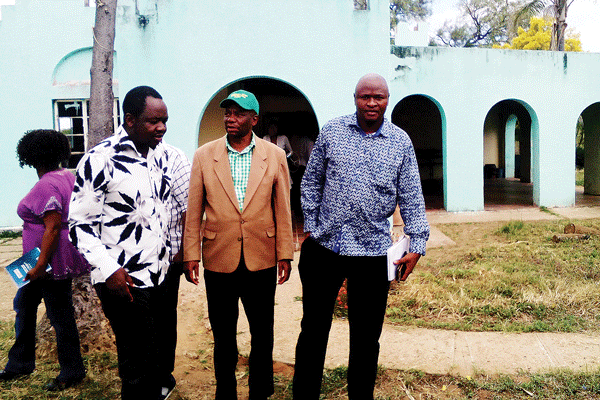
CHIVHU—THE youth development fund has lost $211 000 that was invested through Infrastructure Development Bank of Zimbabwe (IDBZ) to Kadungure Piggery at Nyahoni in Chivhu after the project was badly run and incurred serious losses.
BY VENERANDA LANGA

MPs from the Parliamentary Portfolio Committee on Youth, sponsored by the Southern African Parliamentary Support Trust (Sapst), visited the Kadungure Piggery project on Saturday, only to find empty pigsties, overgrown grass and no activity at all at the piggery project run by the Ministry of Youth despite getting a $211 000 capital injection.
The committee, led by Gokwe-Nembudziya MP Justice Mayor Wadyajena, was in Chivhu as part of its nationwide tours to investigate how the $40 million Youth Development Fund (YDF), bankrolled by four banks, CABS, CBZ, IDBZ and Stanbic Bank, was utilised.
Tafi Greemas Mashonganyika, the deputy director for economic empowerment in the Ministry of Youth told MPs that in 2009 the Kadungure piggery project received $41 000 from the YDF, in addition to a $211 000 loan from IDBZ.
Mashonganyika said at one point the piggery had 600 pigs, before it collapsed due to poor management.
“We anticipated market breakthroughs at Colcom and other big butcheries, but they condemned our pigsties and as a result we had to continue keeping the pigs and feeding them,” he said.
Mashonganyika said as a result the pigs were over 60 kilogrammes, and were no longer marketable, and had to be sold as commercial pork to produce sausages and bacon.
- Chamisa under fire over US$120K donation
- Mavhunga puts DeMbare into Chibuku quarterfinals
- Pension funds bet on Cabora Bassa oilfields
- Councils defy govt fire tender directive
Keep Reading
“At the end we had overstock and could not feed the pigs, and we had to sell them to meet the salary and utility bills, and in 2012 we had a sales turnover of $43 680 against a target of $197 000. This was raised after selling 353 pigs.”
Mashonganyika said the Youth ministry granted them an order to wind up business in 2013 when their monthly expenses were over $20 000 and yet they were making $17 000.
He said they also accrued salary arrears and electricity debts resulting in power being cut off.
“We failed to make a breakthrough at Colcom by virtue of our pigsties which needed $5 000 to uplift them. We said we will pay the workers owed salaries using pigs, but only two workers took the offer, while the others refused. This caused a backlog as we had to continue feeding the remaining pigs.”
Chitungwiza North MP Godfrey Sithole queried how the Youth ministry could allow them to pay salary arrears using pigs.
“I am worried about this [Education minister Lazarus] Dokora way of using livestock to pay salary arrears with pigs. How do you then calculate statutory obligations like pay as you earn and Aids Levy from pigs?” queried Sithole.
As things stand today, it appears the $211 213 loan has sunk down the drain as the facility has been turned into a national youth vocational centre.
A member of the committee Jasmine Toffa (MDC-T) expressed shock at the level of corruption exhibited in the disbursement of public funds, particularly the YDF, adding that the defaulters (80%) should be brought to book.
“This is a job that needs to be done by the Zimbabwe Anti-Corruption Commission. All projects are fraught with irregularities,” Toffa said.











